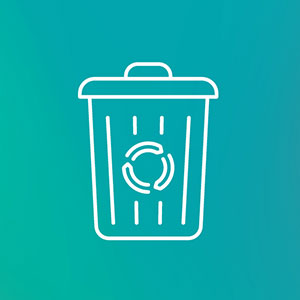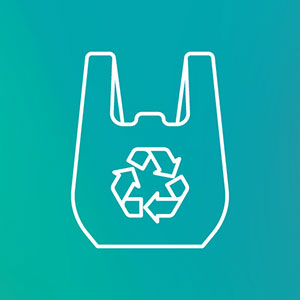Food sustainabilty
Food sustainabilty – making a difference
We are committed to providing healthy and environmentally sustainable food to all our students, staff and visitors.
You'll find a large number of cafes, bars and restaurants on our campus as well as award-winning food in our conference centres.
Our vision is to be a sustainable and socially responsible University that showcases local produce, promotes healthier eating options and supports our environment.
We care where and how we source your food from and are proud to provide high-quality service and products that have minimum impact on the environment as well as create new spaces on campus that champion wellness and sustainability.
Mission statement
To provide sustainable campus and commercial services that help fund teaching, research and facilities at the University of Warwick.
We recognise the important role we play in the supply chain and to work with our community to significantly reduce our direct and indirect emissions and minimise all forms of waste in a practicable way.
Our impact in numbers
Here’s just a few headline figures on the impact of our social responsibility at Warwick
- We’ve reduced number of disposable cups by 44% (407,900 to 228,900)
- We’ve reduced the volume of single use plastic cutlery by 54% (234,000 to 107,000 units)
- 100% of our fresh fish is from sustainable sources
- 1,000 meals previously sent to food waste were sold at cost to the University community via the “TooGoodToGo” scheme
Our impact goals
Our strategy includes a commitment to pursue change across the following priority areas, which are measured and reported on annually:
1.Reduce emissions

Objective
To minimise the volume of direct and indirect carbon emissions embedded within CCSG activity and facilities development.
What we're doing
- Encouraging customers to bring their own cup or to use a drink-in cup wherever possible to cut single use cups by 20% in the next 12 months.
- We commit to not using single use hot takeaway plastic cups, in favour of only using compostable cups.
- We are working towards a viable compostable solution with a 3rd party provider in 2020.
- We are partners in a “Borrowcup” pilot in January 2020 with the Students Union and the student body. The pilot success will be based on saving 200 disposable cups a day and retaining 90% of cups in circulation after a 6-week period.
- Reducing single use of any material / disposable item and encourage multiple usage of any resource.
- We will implement a cost-effective solution such as wooden or metal cutlery that can be reused and recycled where possible to lower our current annual 514,000 pieces to a target of 300,000.
- All water bottles delivered through Warwick Food and Drink are now non-plastic and reusable, saving 30,000 previously purchased bottles per year (data from our stock control system) from disposal.
- Promote public or shared transport to all conference organisers to limit inefficient journeys to and from campus. For Conference Park business, we will measure the proportion of delegates arriving by car for an event (using the permit system) and target a 10% reduction.
2. Waste reduction

Objective
To significantly lower the amount of waste products generated throughout the whole life cycle of our activities (cradle to grave).
What we're doing
- Record and monitor food waste to reduce run-rate by 25% pro-rata through end of day retail price reduction and trialing via routes such as the “TooGoodToGo” app for Warwick Conferences buffet surpluses.
- By February 2020 we will accurately measure the weight of food waste from all the retail outlets by Lyco and then target a reduction of 25%.
- Separating and composting food and coffee waste (including plate waste) from catering, or where this is not possible, sending to anaerobic digestion by March 2020.
- Recycle 100% of all production waste oil, waste cardboard, plastic packaging and glass that can be recycled.
- We will achieve this by rolling out new waste stream processes to all retail outlets by February 2020 and audit 10 black bags of waste per week to ensure maximum recycling by the operational team.
- Reducing the use of water used in our food production. Reduce central kitchen preparation by 10% from 10,000m3 to 9,000m3 per annum on current run-rate or pro-rata using the metered supply readings supplied by Estates.
3. Socially responsible sourcing

Objective
To include environmental and societal impact when selecting new products and services.
What we're doing
- Increasing the proportion of food sourced locally from 30% to 35% to reduce food miles and support our local communities. This will be measure by Procurement colleagues using purchasing data.
- Sourcing fresh red meat (beef, lamb) primarily locally (usually within 50 miles from campus) controlled and measured by Procurement colleagues and reducing frequency of purchase by promoting chicken as the least impactful meat protein.
- Increasing Red Tractor/Farm Assured fresh meat to 90% of overall meat spend by July 2020 to be controlled, monitored and reported by Procurement colleagues. The reminder of meat is specialist e.g. game or certain cured meats.
- Purchasing 100% of fresh fish on the MCS ‘fish to eat’ list and to be Marine Stewardship Council certified by July 2020 to be controlled, monitored and reported by Procurement colleagues.
- We will work with supply chain partners to ensure any products containing palm oil are from a sustainable source in our cafes and conference business. We will measure current usage and define targets for this throughout the year and commit to them.
4. Community engagement

Objective
Engage with the University’s diverse communities to raise awareness of sustainable active lifestyles, promoting health and wellbeing.
What we're doing
- Continuing to increase the variety and quality of vegetarian/vegan/plant based options on all menus and placing them at the top of the list to ‘nudge’ the sustainable choice available.
- Increase the vegetarian based main meals in our cafes from 3.5% to 10% of mix in the next 12 months which would be an extra 23,200 plant based meals measured using data from our till system.
- Promoting the NHS Eatwell guide and recommendations for a healthy diet and lifestyle for an informed and personal decision via our website. We only offer low sodium salt in our cafes.
- Free drinking water available in all CBR and TCC outlets with no single use cups available, this will save approximately 102,000 cups annually from being used. We ask customers to either bring their own reusable cup with them or glass drinkware is provided.
5. Supplier engagement

Objective
Collaborate with direct and indirect suppliers to share our vision and support them achieve their own sustainability objectives.
What we're doing
- Working with suppliers to reduce the amount of packaging used in delivery of goods to campus. In review meetings and in the tender process the Operational and Procurement teams will challenge suppliers to omit all unnecessary packaging (especially plastic) and to take back with them for recycling.
- We will ask them to measure and provide evidence of the packaging waste and then target them with a 25% reduction.
- Working with the Academic community to promote talks and discussions on sustainability and food security that are accessible to University staff and students as well as the wider populous. We will advertise Food GRP events on warwickretail.com and on our digital screens.
Download food policy
The CCSG Sustainability Strategy making our food options more sustainable.
Get involved
Do you have a great idea that could assist us to save energy, reuse more waste or reduce other sustainability impacts?
We’re open to all ideas so please get in touch ccsg at warwick dot ac dot uk.
